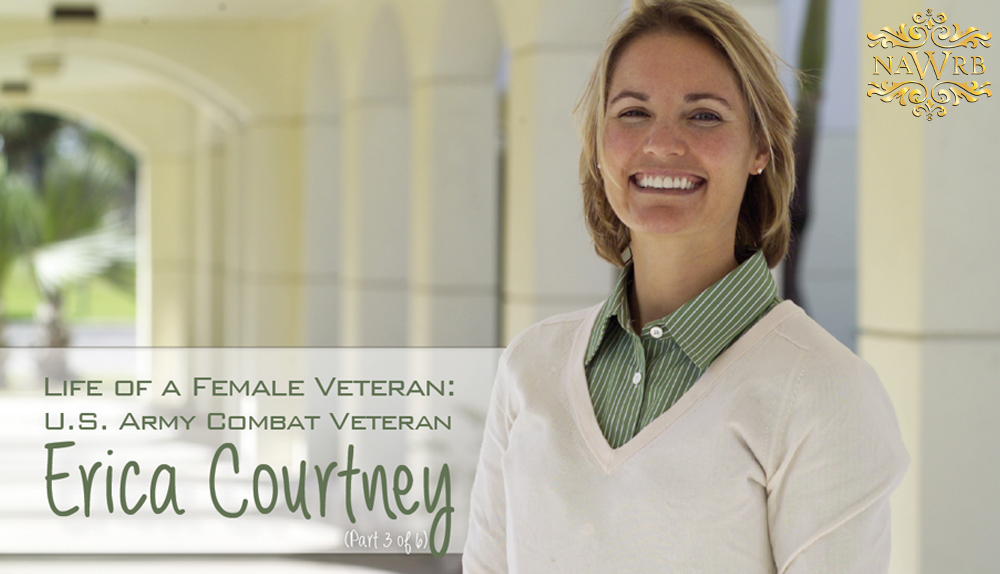Chris and I finally got married and a few years later came our first son. We planned it so I would be pregnant in a non-operational position during an eight-month leadership course. Noah was born upon arriving to my next assignment at the 10th Mountain Division in upstate New York. My mother decided to help since Chris and I were both serving and someone needed to be with the new baby; it really takes a village to raise a family.
I left Ecuador, where I worked on some amazing projects with international organizations to help save the original watersheds, the rainforest and its indigenous people. I was selected to become the first female cavalry commander while I worked as the senior logistician for the unit, but it kept getting pushed back due to logistical needs. The commander I was to replace had already been shot down three times, and survived each. I was told the command was going to be delayed a year, and then I became pregnant with my second son Ayden.
Upon giving birth and successfully delivering him, I went back to fighting shape quickly, ready to take my command. However, a new boss came in and would not release me because I knew the job too well and he needed my continuity. Again, my command got pushed back. Getting fed up as I saw some of my less-than-stellar peers get their commands, I pushed for release from the staff position.
The cavalry units were fighting for me, but the senior leaders would not let it happen. I then decided I had done my time and began thinking about leaving the service. Additionally, the more time I had to think, the more I realized I wasn’t feeling as invincible as before. The dangers of my job were prevalent, friends were dying and I decided I needed to be there for my two young boys.
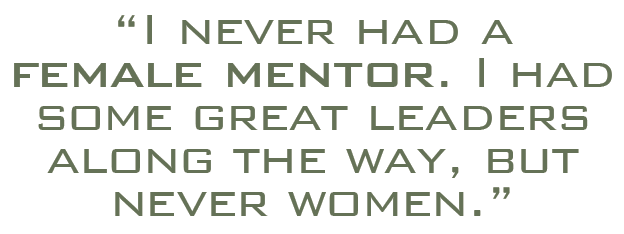
It was an extremely hard decision to leave the service because the young women pleaded with me to stay. They needed to see good women leaders in positions of authority as there were none. I never had a female mentor. I had some great leaders along the way, but never women. I was part of the first wave to blaze the trail. I never felt I was missing anything, but it is important for people to see others who look like them in leadership positions; it empowers them to aspire to be there.
Despite the tugging of emotions, I was honorably discharged and began dipping my toes into a completely unfamiliar world. I had been in the military my whole adult life— 14 years. Concepts like teamwork, integrity, mission accomplishment, sacrifice, leadership, camaraderie and more resonated heavily with me. I entered civilian life.
My husband had switched from the Army to a pilot in the Coast Guard when I got out. We packed up and moved south to Miami, Florida with a baby and a toddler. Everything was new to the both of us; civilian life, a new branch of service and a new place. We showed up to a unit function and I knew some of the guys because we had served together in the Army. They, too, made the switch to Coast Guard.
I felt a bit of camaraderie coming back and was really enjoying the conversations when I noticed out of my periphery snide looks from the wives. Who is this lady talking to my husband? Why are they laughing so much? Boy, she is brash. Okay, I was used to jealous wives but I made sure to get to know my soldiers’ families so they did not view me as a threat. Often times, I would have to call my guys in the middle of the night to come in for a urinalysis drug test. Until the women knew me, I had to deal with the snotty, “And who is this?” My male peers never had to deal with this.
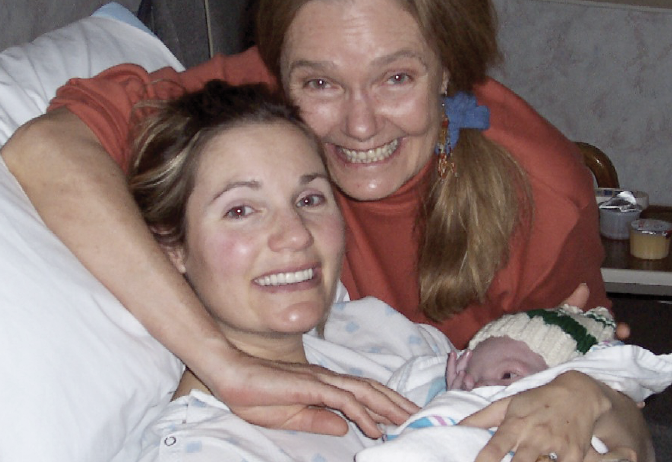 At the party I had an impactful realization that I was not one of the guys anymore. I was one of the girls. What does that mean? I owned my femininity in service and saw it as a strength. However, it was clear that femininity was different out here. I would rather hang with the boys; it was what I was used to. I felt torn.
At the party I had an impactful realization that I was not one of the guys anymore. I was one of the girls. What does that mean? I owned my femininity in service and saw it as a strength. However, it was clear that femininity was different out here. I would rather hang with the boys; it was what I was used to. I felt torn.
Where did I belong? With the guys or the girls? Men go from being a guy to a soldier to a guy. Yes, they certainly have integration issues, but they don’t have to learn how to be a guy again. Women go from being a woman to a soldier and then have to consider what being a woman is in civilian society. It was one more thing to think about. Why is this so difficult?
I felt unprepared for the dreaded transition we all hear so much about— a soldier leaving the military. It was a completely different culture. How was I to fit in? What was I going to do professionally? There was no one to talk to who understood. I had two kids, a husband, and had to move yet again. My husband was still in the system; I was not.
I decided to work on an Executive MBA in Miami. Each classmate had to have at least eight years in their profession so I figured I could learn from them about the corporate world. My classmates were overwhelmingly from somewhere in Latin America with the exception of one Irish guy. I didn’t have much in common with any of them. I felt like an outsider but wanted to learn. My approach was systematic and efficient. When working in groups I expected others to keep up, but very few could.
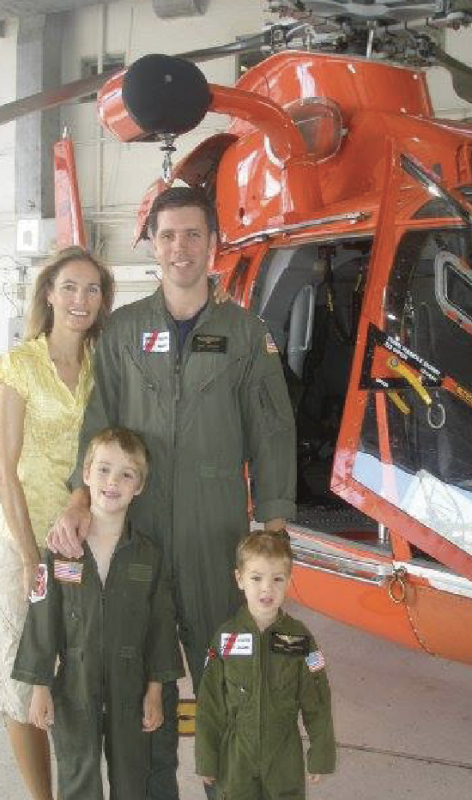 When I had to sit through leadership courses I winced under my breath. What do these people possibly know about leading people when they are hungry, away from their families, tired, stressed and not in a controlled environment, having to be flexible at every turn? What do they know about getting broad orders and figuring out how to get it done creatively? What do they know about getting people to perform their best, pushing people to the absolute limit?
When I had to sit through leadership courses I winced under my breath. What do these people possibly know about leading people when they are hungry, away from their families, tired, stressed and not in a controlled environment, having to be flexible at every turn? What do they know about getting broad orders and figuring out how to get it done creatively? What do they know about getting people to perform their best, pushing people to the absolute limit?
I was distancing myself because I could not relate to their problems which seemed so miniscule to me. They would make comments about military people being like robots. Sure, however, if they respect you, they will go above and beyond the bare minimum. If they do not like you, they will not go out of their way to do a good job, and that is when accidents happen. We can’t afford accidents in the military. Lives are on the line. I ask you, if your employee doesn’t do what they need to, do they get fired? They will not work hard for you if they don’t respect you.
It’s no different, except I don’t have the luxury of firing them. I get what I get and have to make them great. They come to us from all walks of life and we become their family. We get to know them. If they have issues back home, we let them take care of it because if not they are not effective. We develop and mentor them. Do you guys in your corporate positions really care and develop your people? Do you get them to perform in a way they never thought possible? We leaders in the service do. Twenty percent of every dollar that was spent on me was for professional development. Show me any company that does that for their employees.
It was a bit abrasive as this was my world they were discussing. I did not make friends easily. Also, as a woman, the brashness that came with joking, taking criticism and dishing it back was not well received. In the military, harassing each other in a funny way is acceptable and keeps you going with laughter. Being cavalry made it even worse; those are some of the most machismo guys around. I kept my head down and worked towards good grades.
The class had to go to an internship in India. I left a week ahead of my classmates to explore because I was struggling with integration. I hiked the Himalayas, ate great food, went to Tibetan refugee camps and did some soul searching. I needed that alone time. I then met up with my classmates as they travelled all over visiting various businesses.
One day we were in our hotel and I heard a loud explosion. I immediately went into “go” mode, meaning I began doing what I was trained to do: be cautious, look around for clues and try as best I could to fit in and not stand out. It was a bomb placed on the railroad tracks targeting American businessmen. Typical. Pakistan and India have had conflict for years, but interestingly they are targeting Americans.
My classmates could care less. I spoke to the university lead and said I was uncomfortable riding around India in the big, shiny white air-conditioned bus and would not ride in it after the explosions. He called me crazy as if I was suffering from some sort of post-traumatic stress disorder (PTSD). Really? I asked him to order a less obvious, ugly van or bus for the class. He refused.
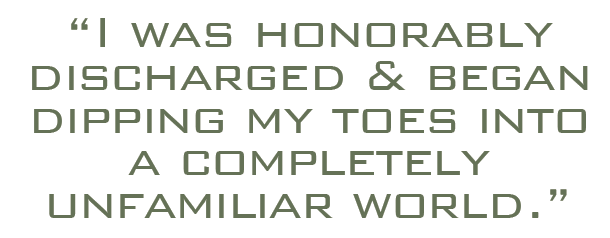 I was ostracized and my classmates thought I was a bit crazy. They had the “go with the flow” mentality. That was not the way I was raised. I grew up learning not to put yourself in danger if you can avoid it and to pay attention to what is going on around you. I ordered a taxi and it followed the bus for days about 10 car paces behind.
I was ostracized and my classmates thought I was a bit crazy. They had the “go with the flow” mentality. That was not the way I was raised. I grew up learning not to put yourself in danger if you can avoid it and to pay attention to what is going on around you. I ordered a taxi and it followed the bus for days about 10 car paces behind.
I spoke a lot to the local taxi drivers and they said things were not normal. The markets were empty, tensions were high and they were uncomfortable. These are signs. I was not trying to act smarter than my classmates like one person said to me; I was just trying to fit in and the last thing I wanted to be was a target.
There were no other big white air-conditioned buses going around India, and it was a bus full of American business students. Why was this so hard for my classmates to comprehend? All it would take is one lone guy placing a sticky bomb on the bus in traffic. Thank goodness this never happened and all was okay, but I had to do what I had to do despite the social fallout from my classmates.
A few years later there were mass shootings at the hotel my class stayed at in India targeting foreigners, an example that my heightened state of alert may not have been a bad thing. I am too familiar with being a target and was trained to mitigate risk. Why is this so hard for others to see?
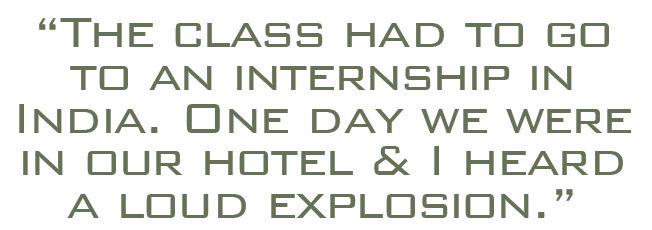 Oh, the cultural divide. I began to feel the differences and, like many veterans, tried to internalize it. Is it me? Am I the problem? What is wrong with me? Can’t I just fit in? I want to. No, you know what, I am fine. I feel I am more prepared and see the world clearer. I can solve a problem and see ten steps ahead of them. My skills are valuable but no one bothers to ask about my background.
Oh, the cultural divide. I began to feel the differences and, like many veterans, tried to internalize it. Is it me? Am I the problem? What is wrong with me? Can’t I just fit in? I want to. No, you know what, I am fine. I feel I am more prepared and see the world clearer. I can solve a problem and see ten steps ahead of them. My skills are valuable but no one bothers to ask about my background.
They can’t possibly understand. They think I am a cog in the wheel of mindless actions. What’s wrong with them? I am not going to waste my time. These people are kind of afraid of me and think I am going to flip out because that is all they hear, PTSD and mental health problems with veterans. They are off the mark.
So begins the isolation stage of the transition, the inability to connect.


 Login
Login

